6 Best VR Ready PCs for the Oculus Rift S
The Oculus Rift S is the gold standard of VR gaming. This is where innovations are happening. This is the system new games are being designed for. This is the system that’s likely to get the most updates and improvements while we wait for the next generation of VR tech to be released.
But, since the Oculus Rift S isn’t a standalone device, your gaming experience is heavily influenced by the computer you hook it up to. You need a computer powerful enough to run the Rift S.
Without one, it’s a fancy piece of tech with laggy performance and less than impressive graphics.
So, in this article, we’ll go over some of the best computers you can get to work with an Oculus Rift S. We’ll also discuss the most important specifications for those computers, what you need at a minimum to make your Rift S work, and the other features that make these computers stand out.
| Budget |
|---|
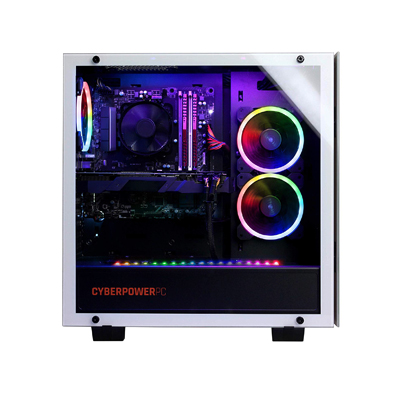 |
| Cyberpower PC Gamer Master |
| 4.6/5.0 |
| Style: Desktop |
| Processor: AMD Ryzen 5 3600 3.6GHz 6-Core processor |
| Graphics Card: NVIDIA GeForce GTX 1660 6GB Video Card |
| Highly affordable option, DirectX 12 gaming optimized. |
| Check Amazon |
| Best Value |
|---|
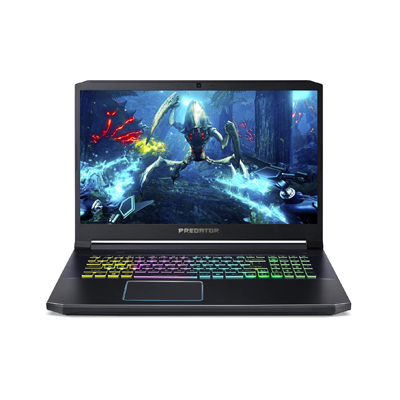 |
| Acer Predator Helios 300 |
| 4.7/5.0 |
| Style: Laptop |
| Processor: 9th Generation Intel Core i7-9750h 6-Core Processor |
| Graphics Card: Nvidia GeForce GTX 1660 Ti |
| Portable and relatively durable laptop, well-built computer. |
| Check Amazon |
| Top Pick |
|---|
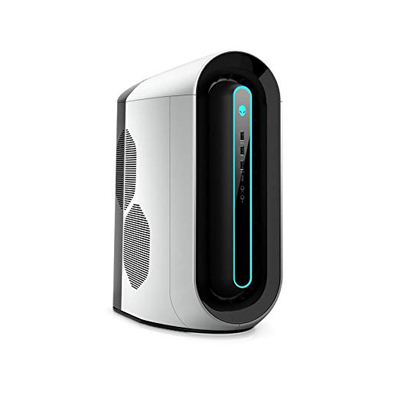 |
| Alienware Aurora R9 |
| 4.9/5.0 |
| Style: Desktop |
| Processor: Intel Core i9-9900K Coffee Lake 16M 8-Core |
| Graphics Card: Nvidia Geforce RTX 2080 TI 11GB GDDR6 |
| Top of the line gaming desktop and solid performance. |
| Check Amazon |
Required Specs for Oculus Rift S VR
| Processor | Graphics Card | Memory | Operating System | USB Ports | Video Output | |
|---|---|---|---|---|---|---|
| Minimum Required | Intel i3-6100/AMD Ryzen 3 1200, FX4350 or greater | NVIDIA GTX 1050 Ti/AMD Radeon RX 470 or greater | 8 GB+ RAM | Windows 10 | 1 x USB 3.0 port | Compatible Mini DisplayPort video output |
| Recommended Specs | Intel i5-4590/AMD Ryzen 5 1500X or greater | NVIDIA GTX 1060/AMD Radeon RX 480 or greater | 8 GB+ RAM | Windows 10 | 1 x USB 3.0 port | Compatible DisplayPort video output |
Best PCs for the Oculus Rift S Comparison Table
Before we get too deep into the specifics, this quick comparison covers some of the most important details about these computers. If you’re in a rush and can’t read the whole article, this list should help you pick your new computer, fast.
| Image | Computer | Processor | Graphics Card | Style | Price |
|---|---|---|---|---|---|
 | Alienware Aurora R9 | Intel Core i9-9900K Coffee Lake 16M 8-Core | 2080 TI 11GB GDDR6 | Desktop | Check Price |
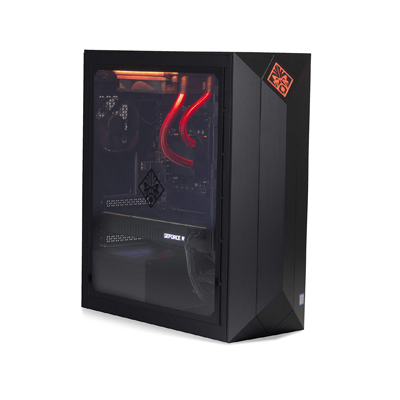 | 2019 OMEN Obelisk Gaming PC | 9th Gen Intel Core i9-9900K Octa Core | 11GB NVIDIA GeForce RTX 2080 Ti | Desktop | Check Price |
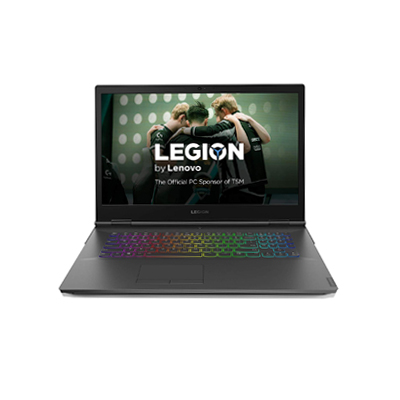 | Lenovo Legion Y740 | Intel Core i7-8750H Processor | NVIDIA GeForce RTX 2080 | Laptop | Check Price |
 | ACER Predator Helios 300 | 9th Generation Intel Core i7-9750h 6-Core Processor | Nvidia GeForce GTX 1660 Ti | Laptop | Check Price |
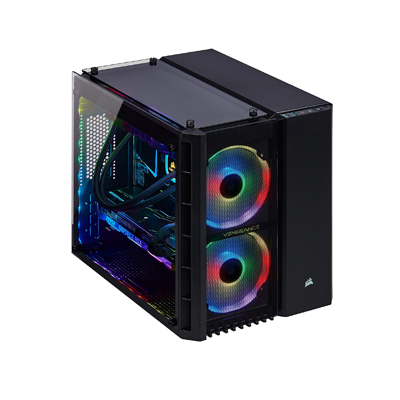 | Corsair Vengeance 5182 Gaming PC | Intel 9th Gen Core i7-9700 Eight-Core CPU | NVIDIA GeForce RTX 2070 Super | Desktop | Check Price |
 | Cyberpower PC Gamer Master | AMD Ryzen 5 3600 3.6GHz 6-Core | NVIDIA GeForce GTX 1660 6GB Video Card | Desktop | Check Price |
Best PCs for the Oculus Rift S: Detailed Reviews
1. Alienware Aurora R9 (Top Pick)
Editors Rating: 4.9/5
If you’re looking for something a little more than a basic gaming computer to go with your Oculus Rift, the Aurora R9 may be the way to go. This is one of the most advanced computers you can get pre-built right now.
We’ll be honest with you. This computer is a tank. It’s much more than you need simply to run a Rift S. It’s our Top Pick based on its quality as a gaming computer rather than how it runs specifically with Rift S. Since working with the Rift S is the baseline we started from, we were looking for computers that offered more.
If you’re just looking for a computer that will run your new Rift S, this is more than you need. If you want a computer for advanced gaming, VR, and that will last for the next several years without being outdated, this is a good option.
So, let’s take a look at the specs.
The Aurora comes with an Intel Core i9-9900K Coffee Lake 16M 8-Core processor. It features a 2 Tb SSD (solid-state drive) hard drive. You’ll also be rocking an Nvidia Geforce RTX 2080 TI 11GB GDDR6 top of the line graphics card.
That’s a powerful combination. A top of the line graphics card needs a top of the line graphics card, which the Aurora has. The 2 Tb drive is more than most casual users will need. But, that said, modern games are getting bigger and bigger. Because storage technology is more efficient than ever before, game designers can afford to offer titles that eat 40, 50, 60 Gb of storage space without blinking.
If you aren’t a gamer, but are a game designer, a graphic artist, or plan to complete other large rendering or processing tasks on your computer, a 2 Tb hard drive helps store those large files directly on your computer.
That brings us to another important feature of the Aurora. This computer comes with 64 Gb RAM built-in. While many other gaming computers include the slots for you to increase RAM over time, the Aurora already has top of the line RAM.
Your RAM may be a less flashy spec than the processor and graphics card, but insufficient RAM is a serious chokepoint on performance. If you want a computer that runs consistently and smoothly, RAM is where that happens.
As a total machine, there are only a handful of computers that can meet or exceed Aurora’s performance. Many of those are custom builds. So, if you’re looking for the best, this is the computer we recommend.
| Tech Specs |
|---|
| Processor: Intel Core i9-9900K Coffee Lake 16M 8-Core 3.6 GHz LGA 1151 |
| Harddisk: 2TB 7200RPM SATA 6Gb/s + 2TB NVMe SSD |
| Graphics Card: Nvidia Geforce RTX 2080 TI 11GB GDDR6 – PCI Express 3.0 x16 Graphic Card |
| RAM: 64GB DDR4 SDRAM |
| OS: Windows 10 – Lunar Light |
| The Pros |
|---|
| Top of the line gaming desktop |
| Solid performance |
| Well above required specs for VR and Gaming |
| Designed to last through several generations of upgrades |
| Lots of storage space |
| Lots of RAM |
| The Cons |
|---|
| Not a liquid-cooled system |
| More expensive and more powerful than most casual gamers need |
Note: This computer would earn a perfect score, except that similarly advanced systems are liquid-cooled, and can be somewhat cheaper.
2. 2019 OMEN Obelisk Gaming PC
Editors Rating: 4.8/5
This is another premium gaming computer, but one that focuses a little more attention on aesthetics than the Aurora.
Like the Aurora, the Obelisk is designed to handle just about anything you can throw at it. This is a fantastic gaming computer, and a good computer for graphics rendering, 3D artwork, programming, and other high-demand tasks.
It features a familiar processor, the 9th Gen Intel Core i9-9900K Octa Core Overclockable Desktop Processor. This version is liquid-cooled, which is important if you don’t want your computer to act as a personal space heater.
Liquid cooling is significantly more efficient than cooling systems that rely on airflow and fans. Water holds more thermal energy for every degree of actual temperature change than either air or metal.
We do want to note that liquid cooling systems aren’t all positive, though. While they are more efficient, they also require maintenance. Water cooling systems need space and can make arranging parts within your computer case difficult, especially if you’re trying to customize a pre-built computer like this one.
More important, if liquid cooling systems fail (which is rare) they can cause even more damage than an overheated computer.
That said, this computer is incredibly well designed, and liquid cooling system failures are very unlikely. We do recommend that you not try to upgrade or customize this rig unless you have prior experience with liquid cooling systems.
For graphics, you’ll get the familiar 11GB NVIDIA GeForce RTX 2080 Ti, which the current top of the line.
Overall, this computer is more than up to the challenge of VR, as well as advanced gaming. It’s also a little more affordable than the Aurora. So, if you’re looking for a premium computer a little more on the affordable side, this is a good option.
| Tech Specs |
|---|
| Processor: 9th Gen Intel Core i9-9900K Octa Core Overclockable Desktop Processor |
| Motherboard: Z390 Motherboard |
| RAM: 64 Gb RAM |
| Graphics: 11GB NVIDIA GeForce RTX 2080 Ti |
| Hard disk: 2TB Ultra Performance PCIe NVMe M.2 SSD |
| Power Supply: 750 Watt Platinum Efficiency Power Supply |
| The Pros |
|---|
| Top of the line processor and graphics card |
| 2 TB SSD |
| Liquid cooling system |
| Plenty of input ports |
| Lots of RAM |
| Likely to be up to spec for several generations of VR |
| HP ENVY Liquid Cooling Solution |
| The Cons |
|---|
| Little space for upgrades and customization |
| Limited airflow in the case, increases chances of overheat |
3. Lenovo Legion Y740
Editors Rating: 4.6/5
This is the first laptop on our list.
There aren’t very many laptops that will work with an Oculus Rift S. The problem isn’t with the processors and graphics cards. Most mid-grade or better laptops have the raw specs you need.
The problem with laptops is their ports. The Oculus Rift requires a fairly comprehensive set of connections, so your laptop has to meet those basic requirements. But, as well all know, laptops have been cutting down on the ports and connections for a long time.
The Legion is one of the computers certified directly by Oculus as a Rift S ready device, so we know you won’t have to worry about connections and processing problems.
So, with that out of the way, let’s talk about what this computer can do.
This is the first computer on our list that isn’t using the most recent top of the line equipment. Instead of an i9 processor, the Legion is running an Intel Core i7-8750H Processor. That’s a generation or so behind the latest tech, but still far ahead of the minimum requirements for a Rift S.
The i-7 processor is also plenty for most gaming needs. The most recent, resource-intensive, games may not run well on their highest settings, but you’ll get reasonable performance from them. Slightly older games will run smoothly on even the highest settings.
Like the processor, the graphic card is a step down from the absolute best gear. You’ll be working with an NVIDIA GeForce RTX 2080. This is still a solid graphics card and pairs well with the previous generation of processors.
The two in combination perform well. Neither card ends up taking on too much of a data load unless you’re stressing the whole system.
However, there is one significant downside to this computer. It’s pretty sparse when it comes to RAM. You’ll only have 8 Gb RAM out of the box. While that is the bare minimum needed to run an Oculus Rift S, it’s the bare minimum for a reason.
You may see some performance errors and lag that a beefier system wouldn’t encounter. While that’s less of a problem for most casual gamers, in VR it can be a serious issue. Lag in VR can lead to motion sickness, dizziness, and other unpleasant physical consequences.
One serious advantage you get with a laptop, though? It’s a complete package. No need to buy a monitor separately. It already has a keyboard built-in. Laptops need fewer peripherals that add to your overall cost.
| Tech Specs |
|---|
| Processor: Intel Core i7-8750H |
| Graphics: NVIDIA GeForce RTX 2080 |
| RAM: 8 Gb RAM |
| Display: 17.3” FHD screen |
| Product weight: 6.17 lbs |
| Battery life: 6-hour battery life (mileage may vary) |
| Keyboard: Corsair iCUE ambient system lighting and backlit keyboard |
| The Pros |
|---|
| The laptop is portable and durable |
| Certified Oculus Rift S ready by Oculus |
| Reasonable specs and performance |
| Slightly more affordable gaming computer |
| Good choice for students, young professionals, and entry to intermediate gamers |
| The Cons |
|---|
| Slightly less advanced than a great gaming computer |
| Doesn’t offer much RAM, little opportunity to upgrade |
4. ACER Predator Helios 300 (Best Value)
Editors Rating: 4.7/5
This computer made our Best Value rating for several reasons. The Helios is, in fact, one of the more affordable computers on this list. But it performs more like a premium machine.
That said, there are some trade-offs that come with this price in terms of the specs. However, if those trades weren’t worth making, we wouldn’t have given this our Best Value rating. Both the Vengeance (the next computer on our list) and the Legion (the last computer we talked about) almost made Best Value.
This computer came out on top because it has the right balance of price and parts. There are some sacrifices, names in the graphics card, but it has a solid processor and better RAM specs that make up for it. Those two things in combination make it the better computer for VR, and the smoother gaming computer in general over the Legion.
The Vengeance is, overall, the more advanced computer, but it’s also slightly more expensive. Plus, since the Vengeance is a desktop, it has more overhead for peripherals before you’re truly ready to play.
Okay. We’ve talked a lot about how we ranked these computers. But our opinion isn’t nearly as important as yours. Let’s get into the specs so you can get a sense of this computer and how it fits into your gaming needs.
The Helios runs on a latest-gen 9th Generation Intel Core i7-9750h 6-Core Processor. That’s not as powerful as an i9, but still significantly more than you need for the Oculus Rift S, which can perform on an i5 if necessary.
It’s graphics card, the major trade-off with this machine, remember, is an Nvidia GeForce GTX 1660 Ti graphics with 6GB of dedicated GDDR6 VRAM. Let’s pause a moment. That graphics card isn’t as advanced as the other computers on our list. It just isn’t.
But, it’s still a powerful enough graphics card to run many games on their max settings, and most games will run well on medium or custom graphics arrangements. The dedicated VRAM also means that it’s got a little more power available to it when it needs it.
The VRAM also means that, if you do stress the graphics card, it will cause less of a slowdown in other computer processes.
So, at the end of the day, we don’t think that the graphics card holds this computer back. It’s not the best card on the market. But it’s far from the worst, and it’s a very functional card for this build.
In exchange, you get 16 Gb of RAM. 16 Gb isn’t that impressive compared to the desktops on this list, but it’s nothing to sneeze at on a mid-range laptop. Doubling the RAM of the Legion also means that the Helios will perform better with an Oculus Rift S.
Overall, this is a good mid-level computer for casual gamers and those looking to minimize the cost of entry for VR, without sacrificing the quality of their VR experience.
| Tech Specs |
|---|
| Processor: 9th Generation Intel Core i7-9750h 6-Core Processor |
| Graphics: Nvidia GeForce GTX 1660 Ti graphics with 6GB of dedicated GDDR6 VRAM |
| Display: 17. 3″ Full HD LED display |
| Product weight: 6.61 lbs |
| Keyboard: RBG backlit Keyboard |
| RAM: 16 Gb RAM |
| CPU Speed: 4.5 GHz max CPU speed |
| The Pros |
|---|
| Well-built computer |
| Portable and relatively durable laptop |
| Reasonable price point, great value for the specs |
| Little more RAM than most laptops |
| RGB backlit keyboard built-in |
| Advanced fan cooling system |
| The Cons |
|---|
| Sacrifices a little in the graphics department |
| Fans can get a little loud during taxing operations |
5. Corsair Vengeance 5182 Gaming PC
Editors Rating: 4.6/5
Heading back into the world of desktops, the Corsair Vengeance is another great option. It’s a little beefier than the laptops, but still firmly in the realm of a mid-range gaming computer. This is something a casual gamer can feel good about owning, but with a little more versatility for those exploring a more serious gaming habit.
Corsair is another good gaming company with a reputation for durable computers that perform well with the parts their given. While it doesn’t have the high-end parts of a pro gaming computer, it’ll surprise you with how much it can with what it does have.
Speaking of parts, let’s talk details.
For the processor, you’ll get an Intel 9th Gen Core i7-9700 Eight-Core CPU. That should be a familiar processor from the two laptops. Not quite a powerful as a top of the line processor, but it still benefits from the latest developments and technology.
You’ll also get an NVIDIA GeForce RTX 2070 graphics card. That’s a couple of steps down from the best, but significantly better than the graphics card included in the Helios. Surely it’s enough to handle the Oculus Rift S, along with most gaming, and even graphic art, requirements.
| Tech Specs |
|---|
| Processor: Intel 9th Gen Core i7-9700 Eight-Core CPU |
| Graphics Card: NVIDIA GeForce RTX 2070 |
| Hard disk: 2 TB SSD |
| RAM: 16 GB RAM |
| Memory Speed: 2666 MHz |
| USB: 2 USB 2.0 ports, 6 USB 3.0 ports |
| Product weight: 40 lbs |
| The Pros |
|---|
| Solid gaming company |
| Good graphics card and processor combination |
| Designed for most gaming needs |
| Comes with an attractive case |
| State of the art RBG lighting along the interior |
| 2 TB SSD |
| The Cons |
|---|
| A little more expensive than similar models |
| Only has 16 GB RAM |
| Heavier than most towers |
6. Cyberpower PC Gamer Master (Best Budget)
Editors Rating: 4.6/5
Our Best Bargain pick is a more conservative option. This is a good computer for people who are looking for decent performance on a budget. More expensive than your typical utilitarian computer, this is still a highly affordable option when it comes to a VR enabled gaming computer.
We look for computers that are a steal for the Best Bargain rating. They perform better than their price tag indicates, and are more versatile than computers of similar price. The Gamer Master is no exception. It’s a good choice for budding gamers who need something beefier than the family computer. It’s also a good student computer, or for professionals who don’t need top of the line processing specs.
It also has our dream brand combination for the processor and graphics cards. AMD’s most recent processors seem to outperform comparable Intel processors ever so slightly, and NVIDIA still produces the best graphics cards in the business.
The Gamer Master comes with an AMD Ryzen 5 3600 3.6GHz 6-Core processor and an NVIDIA GeForce GTX 1660 6GB Video Card. Both work well, and they offer impressive performance put together.
With 6 USC 3 ports, you have plenty of space for all the peripherals you could need, including an Oculus Rift S of course. Plus, it comes with a keyboard and mouse, so you won’t have to purchase those tools separately.
| Tech Specs |
|---|
| Product weight: 32 Lbs |
| Processor: AMD Ryzen 5 3600 3.6GHz 6-Core processor |
| Graphics Card: NVIDIA GeForce GTX 1660 6GB |
| Hard disk: 512 GB SSD |
| Mouse and Keyboard: Yes |
| RAM: 6 GB VRAM |
| OS: Windows 10 Home |
| The Pros |
|---|
| Great processor and graphics card combination for a mid-grade gaming computer |
| Highly affordable option |
| RBG keyboard and mouse, and internal case lighting |
| DirectX 12 gaming optimized |
| The Cons |
|---|
| Small solid-state drive, only 512 GB internal memory |
Conclusion
Hopefully, now that you’ve read this guide, you’ve got a better sense of which computers will work best with the Oculus Rift.
We’ve gone through a wide range of different computers, highlighting the specs that make them a good choice, and how they work together.
Whether you’re looking for a top of the line machine, or just need a functional computer with a minimum investment, there’s something on this list for you. We’re confident that each of these computers will perform well with the Oculus Rift S.
Many of them will likely continue working through the next several advancements in VR technology.


Sorry, having purchased two new Aurora R9 and two new Rift S, I don’t think you should list Aurora as the top choice system. Processing power wasn’t an issue – compatibility is a major issue. The Rift-S has buggy hardware and software, making installation and use extremely difficult (see reddit and other oculus threads on all the freezes/stalls/failed install/startup, etc.) with a main culprit being the USB ports. Apparently, the Alienware Aurora USB 3 ports don’t work well and the findings were replicated on two new independent systems, confirming a design flaw. Only one USB port (front middle port) worked OK with Rift S. If you install, expect more than a dozen hours of reading forums, reinstalls/downloads (we clocked >80GB of repeat downloads of oculus install software), turning off power saving features, virus protection, switching USB drivers, testing different ports, re-installing half-dozen times.